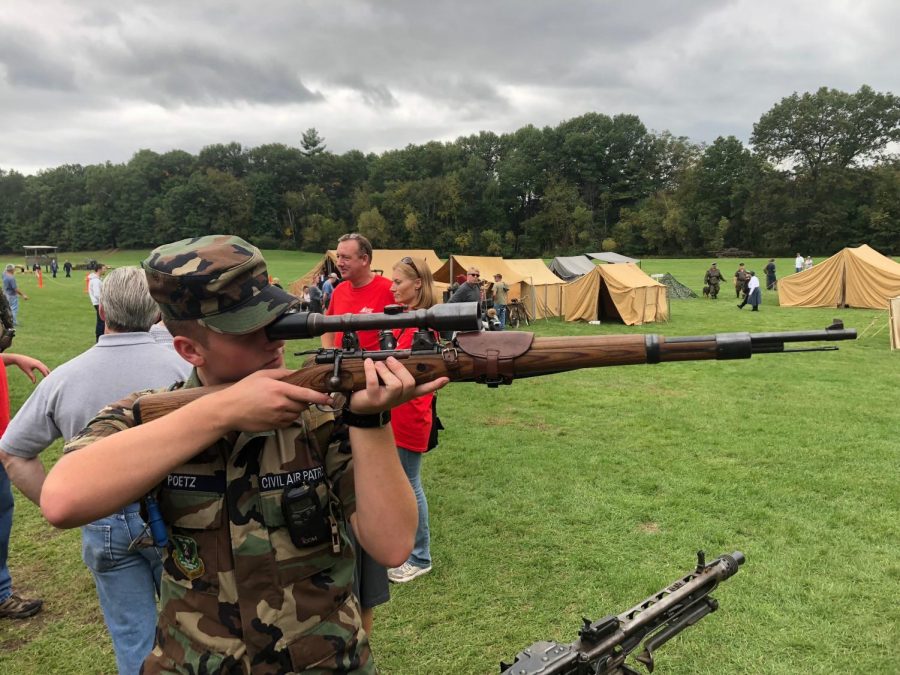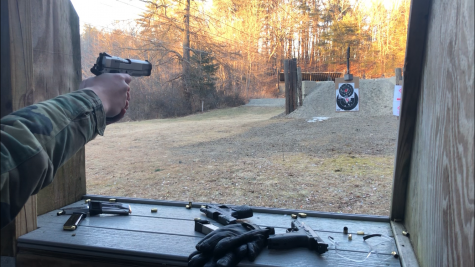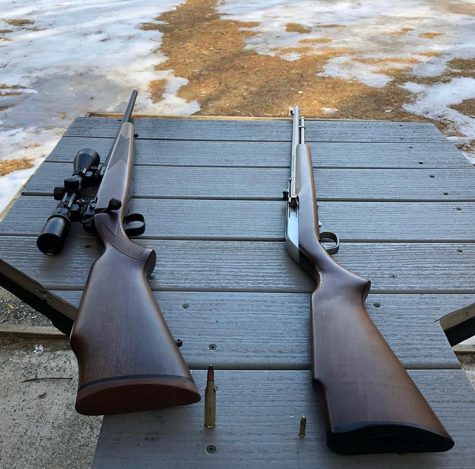Shall Not be Infringed
March 7, 2019
GUNS! Are they good or are they bad? After having several conversations about gun control activists versus gun rights activists, I noticed quite a few of the people who were on the side of gun control had some skewed facts. For instance, They were often wrong about the advent of high capacity magazines being easily accessible, as well as assault rifles being more dangerous than a hunting rifle. In this article, I will not try to sway you to either side, but I do want to set the record straight on the facts and laws.
First, let’s define the second amendment. There are many arguments about gun control stating that you do not need an AR-15 to hunt. The second amendment was never about hunting; it is about allowing the citizens to have a source of power over the government, “A well-regulated militia, being necessary to the security of a free state, the right of the people to keep and bear arms, shall not be infringed”(2nd Amendment). The second amendment was designed as another form of government power regulation so that if the government became too tyrannical, the people could either overthrow it or fix it. Second, people are often mistaken about background checks. Many argue that there are no background checks or they aren’t vigorous enough. They are wrong.
While not all 50 states have the same background check method, Massachusetts at least takes about 3 months even to acquire a firearms license. There is also an instant background check every time a firearm is purchased, ensuring the security of the buyer. To provide even a safe buyer doesn’t become dangerous, Massachusetts has regulated high capacity magazines. High capacity magazines are not legal in Massachusetts unless they were manufactured before the ban on them. A high capacity magazine is any magazine that holds more than 10 rounds. Some people may not think that’s enough to stop someone, so the next fact may bring some comfort. Mental health checks are not universal. However, anybody who has been deemed a danger to themselves by a judge cannot legally purchase or own a firearm. The inspections, permits, and regulations required for the next fact can take years to go through and obtain.
Machine Guns: Fully automatic weapons are not legal unless they were manufactured before their ban and the owner has the proper licensing to own them. Along with that, someone who is looking to purchase a fully automatic firearm must find one that is already likely owned.
Also,there are no true assault rifles; any gun used to assault a person becomes an assault rifle. However, on the idea that military-style rifles are more dangerous than a hunting rifle, the data proves that opinion wrong. Nine out of ten crimes according to the Bureau of Justice statistics, are committed with a pistol or handgun. Assault rifles are just a style of rifle. A Ruger Mini-14 has the exact same caliber, magazine size, and rate of fire as an AR-15.
While guns may be a relatively easy way to end a life, they are also a handy tool in saving it.
Since 2008, the annual use of a firearm to prevent or stop a crime reached up to 3 million. That means that roughly 3 million crimes and possible lives are saved each year by a gun. Most citizens who own a firearm will never commit a crime with their firearm. In a survey from several states, 99.87% of those who hold a concealed carry permit, have not been convicted of a crime. For the firearms that are used in crimes, The Washington Post reports that over 80% are illegal firearms. Of that 80%, 60% are reported stolen from a legal gun owner, while others are smuggled in, and a few are bought legally, to sell them to illegal users.
In conclusion, guns are not an evil device whose only purpose is to kill. It all depends on who is behind the trigger. While a criminal may be behind the trigger, there is also likely someone with good intentions which may be in that 3 million who use their firearm to stop a crime. That criminal isn’t probably using a legal firearm. It is likely stolen or smuggled and bought on the black market.



